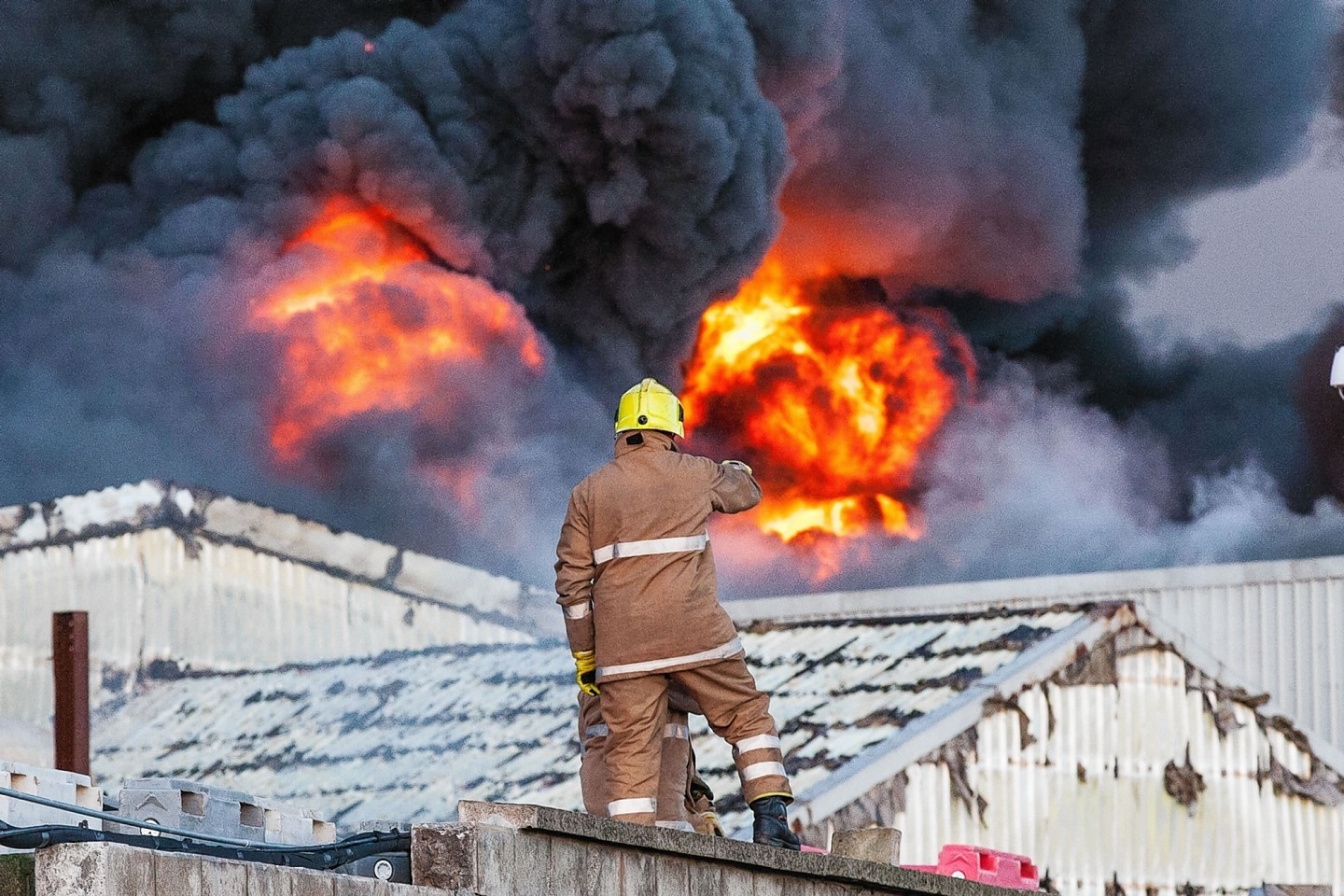North-east fish processor Northbay Pelagic more than doubled profits during 2015, despite a fire destroying its factory in Peterhead.
Accounts lodged at Companies House show the firm – previously known as Fresh Catch – made pre-tax profits of £3.5million last year, compared with £1.5million between December 11, 2013, and December 31, 2014.
But turnover plummeted to £3.5million in the latest period, from £42.5million previously, after a massive blaze on January 17, 2015.
The fire – caused by an electrical fault – was so fierce that a plume of smoke hundreds of feet high and several miles long could be seen as far away as Aberdeen.
It raged for 10 hours, destroying processing and packing lines and the firm’s office and administration block.
No lives were lost and no one was seriously hurt, but Peterhead faced the prospect of major job losses.
Northbay, which employed 120 full-time and about 100 temporary workers at the time, later unveiled multimillion-pound plans for a new factory.
It opened in January of this year, just in time for the start of the mackerel season.
The company’s latest accounts also reveal Chris Anderson and his son, Colin, who got the factory back up and running, are no longer directors
Northbay is now owned by Plymouth-based Interfish, although it is ultimately controlled by Johannus Colam.
Interfish, which this year launched legal proceedings against the Peterhead firm’s former bosses in a dispute over “charges, contracts and obligations”, did not respond to a request for comment on Northbay’s accounts.
The fire was a dramatic new episode in a checkered history for the Buchan company.
In 2012, Fresh Catch, one of Europe’s largest pelagic fish processors, was fined £160,000 for its role in the UK’s biggest illegal landings – or so-called “black fish” – scam.
The company admitted helping skippers make undeclared landings worth £10million.
Police and officers from the Scottish Fisheries Protection Agency – as the Scottish Government’s fisheries enforcement arm was known then – had raided the firm in September 2005.
They found that an underground pipe used to deliver fish from the quayside had a mechanism to divert catches into a secret hold, where they could be hidden from inspectors.
